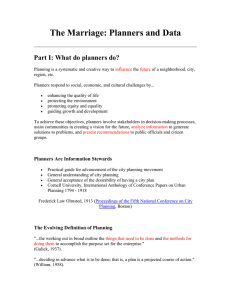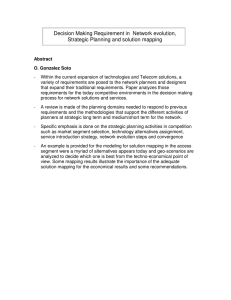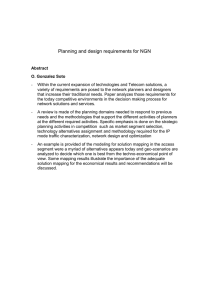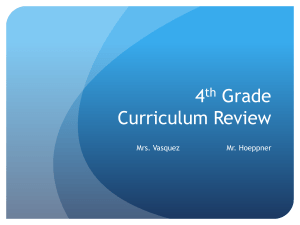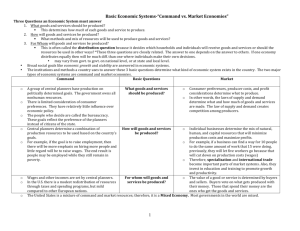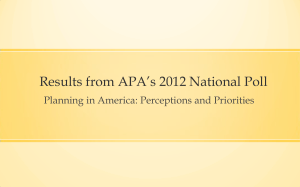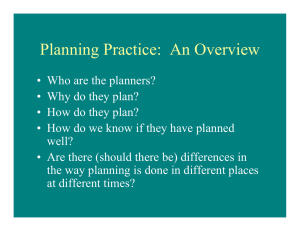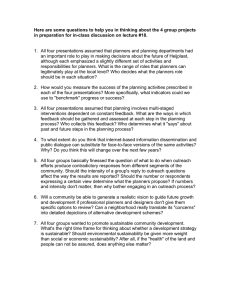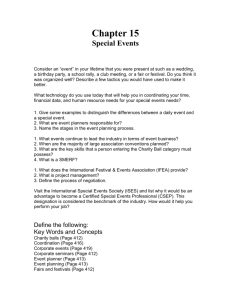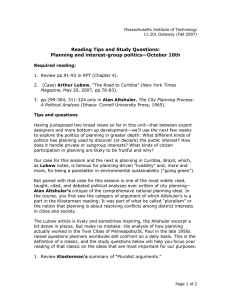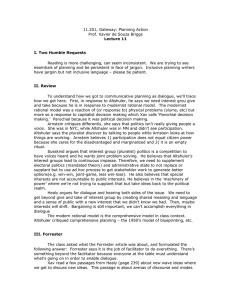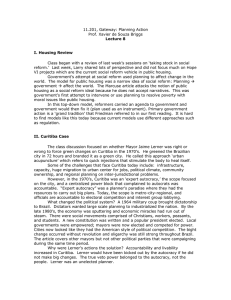Reading Tips and Study Questions: Session Three
advertisement
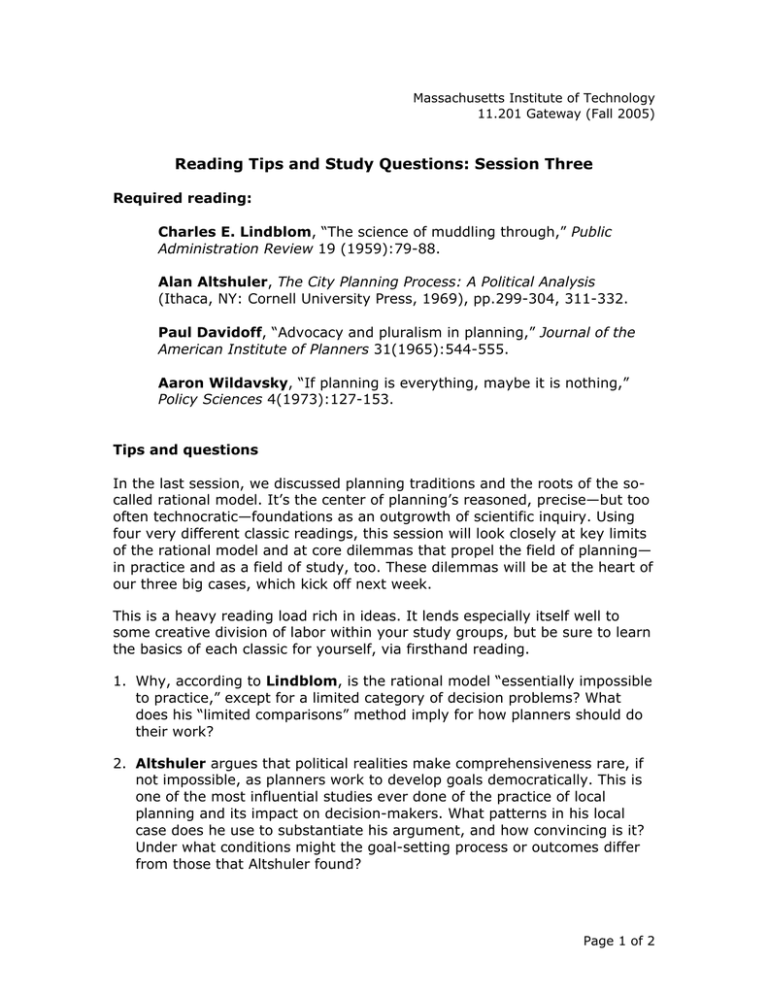
Massachusetts Institute of Technology 11.201 Gateway (Fall 2005) Reading Tips and Study Questions: Session Three Required reading: Charles E. Lindblom, “The science of muddling through,” Public Administration Review 19 (1959):79-88. Alan Altshuler, The City Planning Process: A Political Analysis (Ithaca, NY: Cornell University Press, 1969), pp.299-304, 311-332. Paul Davidoff, “Advocacy and pluralism in planning,” Journal of the American Institute of Planners 31(1965):544-555. Aaron Wildavsky, “If planning is everything, maybe it is nothing,” Policy Sciences 4(1973):127-153. Tips and questions In the last session, we discussed planning traditions and the roots of the socalled rational model. It’s the center of planning’s reasoned, precise—but too often technocratic—foundations as an outgrowth of scientific inquiry. Using four very different classic readings, this session will look closely at key limits of the rational model and at core dilemmas that propel the field of planning— in practice and as a field of study, too. These dilemmas will be at the heart of our three big cases, which kick off next week. This is a heavy reading load rich in ideas. It lends especially itself well to some creative division of labor within your study groups, but be sure to learn the basics of each classic for yourself, via firsthand reading. 1. Why, according to Lindblom, is the rational model “essentially impossible to practice,” except for a limited category of decision problems? What does his “limited comparisons” method imply for how planners should do their work? 2. Altshuler argues that political realities make comprehensiveness rare, if not impossible, as planners work to develop goals democratically. This is one of the most influential studies ever done of the practice of local planning and its impact on decision-makers. What patterns in his local case does he use to substantiate his argument, and how convincing is it? Under what conditions might the goal-setting process or outcomes differ from those that Altshuler found? Page 1 of 2 3. Davidoff urges planners to be advocates, not just technicians, and to engage in the “contentious work” of developing policy. How are the premises of his argument similar to or different from those of Altshuler? What are the key risks and opportunities in the vision of practice that Davidoff outlines? 4. “Why can’t the planners ever seem to do the right thing?” Why, according to Wildavsky, do planners become vulnerable, prone to “defending” and “rationalizing”? Why does he conclude, ultimately, that “Planning requires the resources, knowledge, and power of an entire people”? Is his conception of power different from Altshuler’s or Davidoff’s? Big-picture arguments aside, what are the concrete implications here for how planners should practice? Page 2 of 2
